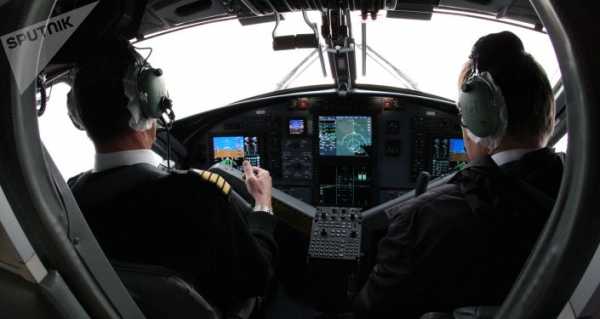
Russian scientists from the State Scientific Research Institute of Aviation Systems (GosNIIAS) in cooperation with specialists from the Moscow State University of Psychology & Education (MSUPE) are developing a unique system to monitor the condition of civil aviation pilots.
According to its creators, the system will help assess real-time crew activity and prevent emergency situations. The study’s results were published in the journal Experimental Psychology.
The increasing sophistication of aviation technology and the psychological burden on pilots makes the development of automated safety systems for monitoring crews in real-time a pressing task today.
The main challenge in creating such systems is finding mathematical models linking flight parameters, aircraft specifications, and the psychophysiological state of the crew.
A joint research team from GosNIIAS and MSUPE has proposed a unique model for the correlation of the three types of metrics mentioned above that the creators say is unparalleled in its accuracy and detail.
A pilot’s psychophysiological state, including stress, is assessed by tracking gaze movement trajectories and primary indexes for time series of oculomotor activity. Risk assessment level is determined by probability estimates, which are computed using multivariate statistical and wavelet analysis. According to the authors, the key elements contained in the model are the three new metrics that enable more efficient flight analysis.
Provided the computational performance is sufficient, flight data analysis can be implemented in real-time, said the specialists from GosNIIAS and MSUPE. According to them, the system is currently aimed at assessing pilots’ skills in modern flight simulators. But in the future, the scientists plan to adapt it for use in real-world flights as well.
This work was carried out as part of the EU Horizon 2020 programme’s “SAFEMODE” Project (Grant Agreement No. 814961) with financial support from the Ministry of Science and Higher Education of the Russian Federation (Project UID RFMEFI62819X0014).
Sourse: sputniknews.com






